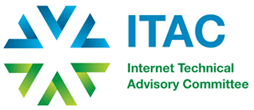
In the interview below Ambassador Dionisio Pérez-Jácome, Mexico’s Permanent Representative to the OECD, answers a series of questions. The answers are given in the context of the still on-going process of definition and organization of the Mexico 2016 Ministerial on the Digital Economy. Therefore, a wide array of information on the Ministerial is still under review by the relevant Committees, including the OECD Council, and is thus not yet declassified and is subject to changes.
When did Mexico join the OECD, and what has been your country’s economic and social priorities since then?
On May 18th, 1994 Mexico deposited its instruments of ratification of the Convention on the OECD. For Mexico, joining the OECD and NAFTA the same year (1994) represented a key recognition of the progress we had achieved in the preceding years. It acknowledged our efforts guided towards establishing a more efficient market economy, through our strong commitment to deep structural changes, open trade and an open economy.
During the past 21 years, Mexico has emphasized its work with the OECD to tackle a wide array of challenges, including:
- Consolidating a stable macroeconomic environment,
- Achieving higher levels of inclusive growth and development,
- Ensuring a high quality of education, o Boosting competition and competitiveness,
- Improving regulatory framework and impact,
- Reinforcing fiscal and budgetary policies, as well as strengthening institutions, through higher accountability, transparency standards and a results-based scheme.
During the past three years, under President Peña Nieto, the OECD has been an important collaborator in the design of Mexico´s ambitious structural reform agenda. Mexico looks forward to continue its close work with the OECD in the implementation of structural reforms to achieve higher growth and productivity through a strengthened and more resilient and inclusive economy, institutions and society.
What are the objectives and hopes of Mexico for the 2016 OECD Ministerial?
The objectives and hopes for the 2016 Ministerial include:
- Addressing the economic and social benefits of an open Internet and the policies that support its development
- Taking advantage of the economic and social benefits from convergence to the Internet of Everything
- Enabling greater co-operation to protect consumers and manage privacy and security risks
- Benefitting from the new, ever-evolving labour markets
More detail on these issues can be found at
http://www.oecd.org/sti/dep-ministerial-2016.htm.
What in your opinion are the key changes in the digital economy since the last OECD CDEP Ministerial in 2008 in Seoul?
The main change in the digital economy since the Seoul Ministerial is the rapid pace at which the Internet has grown and diffused across the globe, and the deeper impact this has had on governments, businesses and societies. The very recent OECD Digital Economy Outlook 2015 sheds light on these issues:
- World exports of manufactures ICT goods grew by 6% per year while ICT services grew by 30% yearly from 2001 to 2013.
- There has been an overall decrease in prices, increasing mobile and internet per capita penetration. For example, mobile broad-band baskets for smartphones decreased on average in OECD countries by 52% in 2014 compared to 2012.
- In 2014, 95% of enterprises had broadband, up from 86% in 2010.
- In 2014, 76% of businesses had web presence and 90% were interacting with public authorities online.
This has also brought upon important changes and challenges for business through e-commerce, as well as to the job market, particularly for younger generations.
The increasing pace of technological progress, coupled with a rapid path towards the “Internet of Things” or “Internet of Everything”, poses challenges for governments, as well as important benefits for societies. Hence, governments are taking important steps to develop national digital strategies to ensure society reaps the full benefits of the digital economy.
Very detailed information on this question can be found in the 2013 OECD publication “The Internet Economy on the Rise: Progress since the Seoul Declaration”.
What do you see as the key challenges and opportunities for the digital economy in the next decade?
The key challenge is to continue to harness the benefits of the digital economy. Moving forward will include supporting even further penetration of services and making markets more accessible to all social sectors. Furthermore, trust must be enhanced in order to increase social participation, the number of enterprises participating in e-commerce (21% in 2014 on average for OECD countries, only up 2% from 2009) – particularly the need to boost SMEs – and further develop national strategies to face the impacts on skills and employment across the different social sectors: age, economic status, geographical location, etc.
The 2008 Ministerial resulted in the creation of the Internet Technical Advisory Committee (ITAC) and Civil Society Advisory Committee (CSISAC) to provide their expertise and views in the work of the OECD CDEP. How does Mexico see the value of the role of non-governmental stakeholders in the work of the OECD?
Mexico greatly values and supports the participation and work of ITAC, CSISAC and others in the OECD CDEP and other Committees. The digital economy requires collaboration amongst all stakeholders, which is an approach being sought after for the Mexico 2016 Ministerial, and is viewed by Mexico as a key element of an inclusive dialogue on these timely issues.
Photo credit: OECD/Michael Dean
